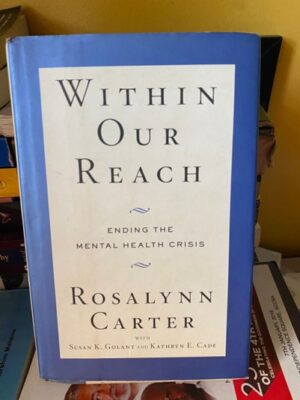On Sunday former US first lady Rosalynn Carter passed away. She was 96. It was my wife who informed me about her passing. On our way to Accra, she asked if I knew about her death. I said no. Apparently, the former US first lady died the night before. In a statement issued by the family, her husband, Jimmy Carter, the former US President described her as an “equal partner in everything I ever accomplished.” She said the wife gave him wise guidance and encouragement when he needed it.
Mr. Carter, who served one term as president, said as long as the wife was alive, he knew somebody loved and supported him. The two had been together nearly a century. Before her death, the former first lady was diagnosed with dementia. There is no cure for dementia.
A humanitarian and mental health activist, I first met Mrs. Carter in 2010. I had travelled to the United States in the summer for visit and report on a road trip. My host, whose office was located some few blocks away from The Carter Centre, the non-profit and humanitarian organisation setup in the family’s name, had been invited to attend a book reading and launch by Mrs. Carter. She asked that I came along. She knew it was something that might be of interest to me. I grabbed the invite with excitement.
I had met the husband two or so years before. He was traveling across selected countries in Africa, promoting healthcare, democracy and building schools. He made a stopover in Ghana and one of the reporters traveling with him, an American documentary filmmaker that I had worked with on a project, asked me to partner him cover the trip.
I got to meet the man for the first time, in the flesh. He was very humble. He freely interacted with people in the villages we visited, and even shared in their meals. At the end of the trip, I got an autographed copy of one of his books, ‘Faith, A Journey For All’.

On this account with the husband, I treated the invitation to the event with reverence. We drove into the centre an hour before the scheduled time. It was my first time in a facility dedicated to a former US President. The tour made an impression on me, especially the value America’s democracy places on what their former leaders should go home with.
Sadly, in Africa, and Ghana, those we call leaders are more interested in walking away from office with hefty monetary incentives and buildings. If they have their own way, they may even mortgage the country and disappear with the returns. And this is after all that they may have enjoyed whilst in office.
Few minutes before time, Mrs. Carter, holding a small black bag and flanked by her aides, walked into the venue, smiling. She exchanged warm pleasantries with the guests and took her seat. An aide spoke about the reason for the gathering and introduced Mrs. Carter. She took the microphone, paid tributes to the others who helped her worked on the book.
Touching on the book ‘Within Our Reach: Ending the Mental Health Crisis’, Mrs. Carter spoke passionately about mental health and why it should not be swept under the carpet. She also mentioned the issue of stigma and why a lot more work had to be done to end it. She said a lot more people are not sure of how the society may respond if they disclose their mental health problems. It was an interactive event and one which I enjoyed.
After three or so questions had been put to her, I grabbed the microphone, introduced myself and said I was visiting from Ghana. Before I could continue with my question, she politely interrupted and spoke about a visit she and the husband made to a village in the north. She spoke happily about the warm reception the chiefs and people in that village accorded them.
“You may now ask your question, young man,” she said with a smile. I want to know what inspired you to take up the mental health crusade, I said. She spoke about an encounter with a commuter on a train station platform. It was in the 1970s. She bumped into the woman right after coming out of the train. A single mother, she had a son suffering mental health. The child had been kept away from the public, because of the then existing stigma.
I believe most of her staff might have heard her share the story but, even with that, it was still gripping. She had emerged from the train and just when she was about to take off, she saw the fellow commuter. She stood alone with her thoughts. Whatever those thoughts were, she was determined to get to it.
She approached her and after winning her trust, the woman told Mrs. Carter about his son. The son had come down with serious mental health problem. The two became friends and she later met with the said son. That encounter also coincided with the husband, Jimmy Carter, informing her about his intention to put himself up for election as the US President.
Mrs. Carter promised the husband she was going to back him on the condition that if he became president, the issue of mental health was going to be part of his plans. Jimmy Carter became president, albeit one term. But his administration did factor in mental health and made it a legacy project that is today saving lives. I bought a copy of the book and, she happily signed for me. she shook my hand and wished me safe trip back to Ghana.
Rosalynn Carter, a humanitarian, activist and a former first lady, did not just pass through the earth; she impacted it. Positively!










